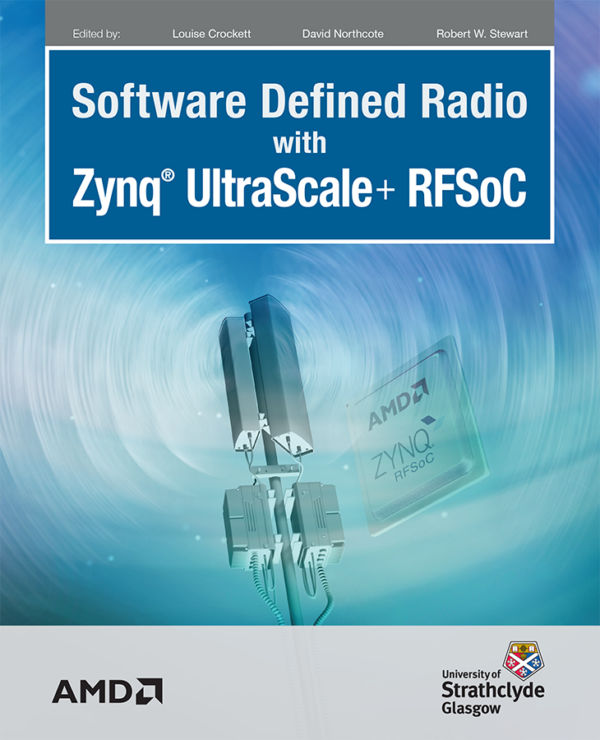This repository has now been archived. See the new RFSoC-Book repository that contains the same DSP Notebooks and more!

|
Available Now! Software Defined Radio with Zynq® UltraScale+ RFSoC Free Download Printed Edition |
This repository contains a collection of educational Jupyter Notebooks on DSP (Digital Signal Processing) theory. No special hardware required, just a computer that has Python and the Jupyter environment installed (we recommend Anaconda if you are setting up for the first time). If you are running this from a board running PYNQ you should already be all set.
The DSP notebooks can be installed on to your development board by running a simple line of code in a command terminal. However, you will need to connect your board to the internet. Follow the instructions below to install the notebooks now.
- Power on your development board with an SD Card containing a fresh PYNQ v2.7 image.
- Navigate to Jupyter Labs by opening a browser (preferably Chrome) and connecting to
http://<board_ip_address>:9090/lab. - We need to open a terminal in Jupyter Lab. Firstly, open a launcher window as shown in the figure below:
- Now open a terminal in Jupyter as illustrated below:
- Now simply run the code below that will install the package to your system.
pip3 install git+https://github.com/strath-sdr/dsp_notebooksOnce installation has complete you will find the DSP notebooks in the Jupyter workspace directory 'rfsoc-studio/dsp-notebooks'. The folder will be named 'dsp-notebooks'.








